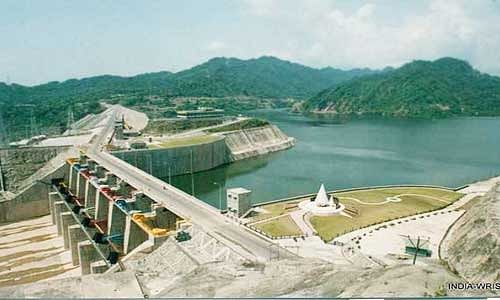
Recent reports indicate that India has halted the water flow to Pakistan from the Ravi River following the completion of the Shahpur Kandi barrage, situated on the borders of Indian Punjab and Occupied Jammu and Kashmir.
According to India Today, the previously allocated 1150 cusecs of water for Pakistan will now be utilized for the benefit of the Indian occupied region of Jammu and Kashmir. This decision is aimed at supporting agricultural activities across 32,000 hectares of land in the Kathua and Samba districts.
Critics accuse India of pursuing a “water terrorism” agenda by implementing projects like the Shahkandi barrage, ostensibly for irrigation and hydro power generation purposes, but at the expense of diverting water away from Pakistan.
India’s construction of various dams, including the Bhakra Dam on the Sutlej, Pong and Pandoh Dam on the Beas, and Thein (Ranjitsagar) Dam on the Ravi, has raised concerns about its compliance with the Indus Waters Treaty.
The Indus Waters Treaty, brokered by the World Bank and signed on September 19, 1960, is a water-sharing agreement between India and Pakistan. It categorizes rivers into Eastern Rivers (Sutlej, Beas, and Ravi) allocated to India, and Western Rivers (Indus, Jhelum, and Chenab) allocated to Pakistan.
Prince Edward stands apart from his brother Andrew Mountbatten-Windsor amidst a storm of royal controversies.…
President Donald Trump unveiled his plan to boost import duties on almost all United States…
US President Donald Trump announced a significant increase in tariffs on imported goods from 10…
Germany's ruling conservatives have backed new measures to ban social media use for children under…
Sindh Chief Minister Murad Ali Shah has condemned calls for dividing his province and separating…
Nicole 'Snooki' Polizzi has made a significant statement about her health journey. Recently diagnosed with…
This website uses cookies.